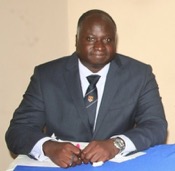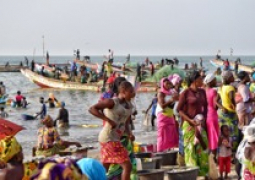
DPS Jawara made these remarks on Wednesday 17 August, during an interactive workshop hosted by the Ministry of Environment, Climate Change and Natural Resources (MECCNAR), to explore innovative delivery mechanisms for enhanced resilience (e.g. decentralized finance; aggregation platforms; social protection schemes), convened under the Least Developed Countries Initiative for Effective Adaptation and Resilience (LIFE-AR) at Ocean Bay Hotel.
According to the most recent studies done, The Gambia is responsible for 0.01% of greenhouse gas emissions in the world. However, The Gambia is relatively one of the most affected countries from the effects of climate change. The country has been affected by flash floods and Mr. Jawara said the amount of water recorded in a 24 hour period at the end of July, was equivalent to at least a third of the average annual rainfall received in the last 3 decades.
He also observed that we have seen long dry spells and abnormal temperatures that are affecting farming activities, our health and wellbeing.
He highlighted that The Gambia mainly practices rain-fed agriculture, therefore any changes in the rainfall pattern would affect our lives and livelihoods in terms of farmers’ incomes, foreign exchange earnings from cash crop exports and access to wholesome food.
He further said that as part of the LTS, LIFE-AR would be exploring ways of maximising resources that are received, ensuring the bulk goes towards the mitigation and adaptation measures required to combat climate change.
Mr. Jawara explained that current statistics show that about 18% of what is approved for climate change financing actually reaches Least Developed Countries, adding that, of that 18%, only 10% reaches the vulnerable communities.
For this reason, he said the LIFE-AR, of which The Gambia is one of 6 front runner countries piloting the initiative, will seek to ensure that at least 70% of climate financing actually reaches the LDCs.
He said the workshop was meant to bring stakeholders together, in order to brainstorm and find mechanisms and ways in which The Gambia can receive the maximum resources approved for climate finance, and ultimately for most of that to reach the communities that are directly affected by the effects of climate change.
Read Other Articles In National News

FOHSMN strengthens partnership to enhance health, safety policies
Mar 13, 2025, 11:26 AM




